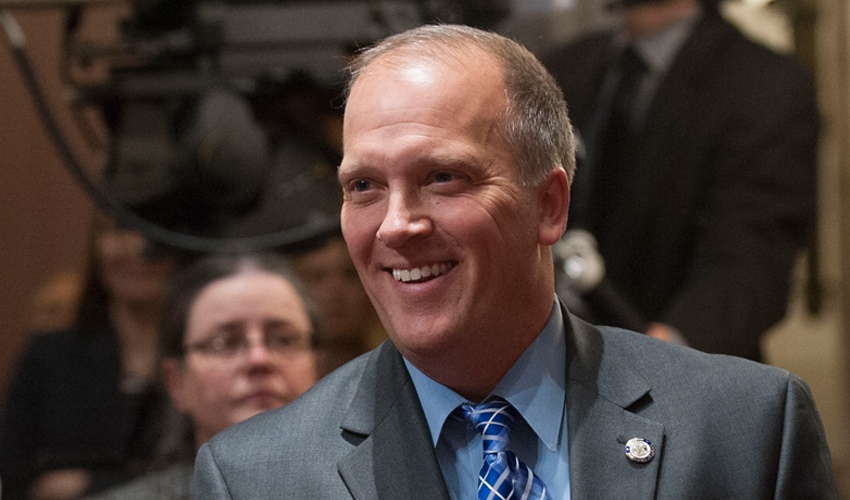Schimel Suit Cost Workers $23 Million
Suit he joined stopped 165,000 Wisconsin workers from getting overtime pay.
It was back in May 2016 that the U.S. Department of Labor issued an order updating the federal rule on when overtime must be paid. The rule change, as U.S. Secretary of Labor Thomas Perez explained to the media, had once applied to 62 percent of full-time salaried workers in 1975 and now covered just 7 percent of these workers.
The rule originally exempted managers and workers earning more than a certain salary, but inflation in salaries had gradually made most workers ineligible for the overtime protection. As the labor group, the National Employment Law Project Action Fund noted, the salary threshold for overtime protection had been frozen at just $23,660 since 2004.
But just before the rule change was going to go into effect, a group of 21 states sued the U.S. Department of Labor to block it. Wisconsin Attorney General Brad Schimel, with the backing of Gov. Scott Walker, was one of those 21 state attorneys general pursuing the lawsuit, one of a flock of anti-Obama administration suits Schimel pursued.
But the business publication Forbes reported that nearly every state involved in the suit had a Republican governor and that the suit was strategically filed in federal court in Sherman, Texas, to get a sympathetic judge. The lead plaintiffs were the states of Texas and Nevada, each of which had Republican attorneys general.
Perez called the suit at “partisan obstructionist” effort “to prevent the Obama administration from making sure a long day’s work is rewarded with fair pay.”
The rule sought to shrink the so-called “white collar exemption” that allowed employers to refuse to pay overtime, as Bloomberg Law reported. “It would do that by more than doubling the salary threshold—up to about $47,500—under which workers are automatically entitled to overtime pay.”
This would include 4.2 million executive, professional and administrative employees plus another 8 million workers covered by the new salary threshold, as The Hill reported. But this represented just 6.6 percent of the 124 million workers in the country.
The Department of Labor said the changes would restore teeth to the Fair Labor Standards Act, which it called “the crown jewel of worker protections in the United States,” the Chicago Tribune reported. “Critics say it’s wrong that some retail and restaurant chains pay low-level managers as little as $25,000 a year and no overtime — even if they work 60 hours a week.”
The rule was opposed by business groups but also caused concern for some states. Iowa, for example, estimated that the new overtime requirements would cost the state $19.1 million in payroll expenses for government and public university workers in the first year after the rule went into effect, as Bloomberg reported.
Texas was “a particularly attractive venue for the overtime challengers, because federal judges in the state have recently been willing to pump the brakes on other Obama administration initiatives,” Bloomberg reported. “Another likely factor motivating the filing in the Texas Eastern District is the jurisdiction’s reputation of moving cases quickly, earning the nickname ‘rocket docket.’”
Sure enough, the court acted in less than two months, releasing a ruling granting a nationwide preliminary injunction, saying the Department of Labor’s rule exceeded its authority as delegated by Congress
“I’m incredibly happy the Court agreed the rule should be put on hold,” Schimel declared, in a statement calling it a victory against “an out-of-control federal bureaucracy.”
The injunction was also a gift to newly elected President Donald Trump, as the Tribune noted: “With no new overtime changes kicking in Dec. 1, Trump can accept the status quo and won’t have to risk angering workers by walking back overtime benefits shortly after employees start receiving them.
A typical worker who lost out on expanded overtime pay was an assistant manager at a big-box retail store or a restaurant chain who earns $25,000 to $45,000 a year,” the report noted. “Other affected workers include low-level, low-paid managers at banks, health insurance companies, and a wide range of other types of businesses.”
It’s a huge loss for the state’s middle class, which has been falling behind the wealthiest residents in annual income for decades. And it’s a loss most residents oppose, as a poll by NELP found 81 percent of Wisconsin voters support an overtime pay requirement. Gov. Walker and the Legislature also have the power to set a similar rule for overtime, but have never shown interest in this.
If you think stories like this are important, become a member of Urban Milwaukee and help support real independent journalism. Plus you get some cool added benefits, all detailed here.
Murphy's Law
-
Top Health Care Exec Paid $25.7 Million
 Dec 16th, 2025 by Bruce Murphy
Dec 16th, 2025 by Bruce Murphy
-
Milwaukee Mayor’s Power in Decline?
 Dec 10th, 2025 by Bruce Murphy
Dec 10th, 2025 by Bruce Murphy
-
Total Cost of Foxconn Is Rising
 Dec 8th, 2025 by Bruce Murphy
Dec 8th, 2025 by Bruce Murphy























The 1% has completed their revolution. They now control all branches of the Federal Government and many state governments. It’s time to return to government based on the common good.